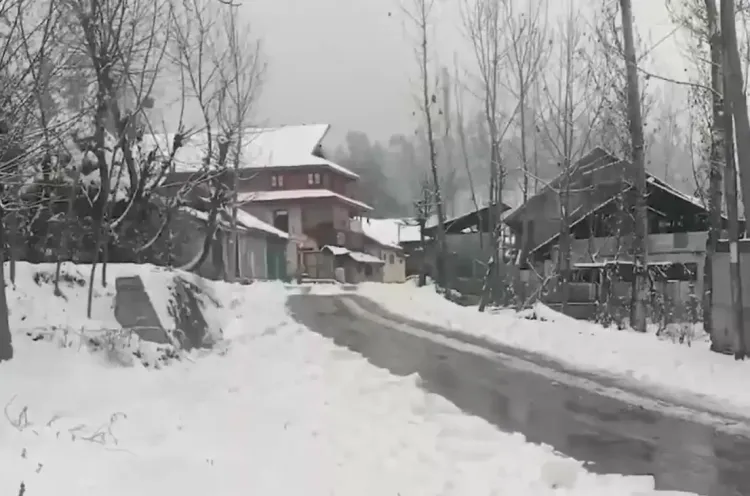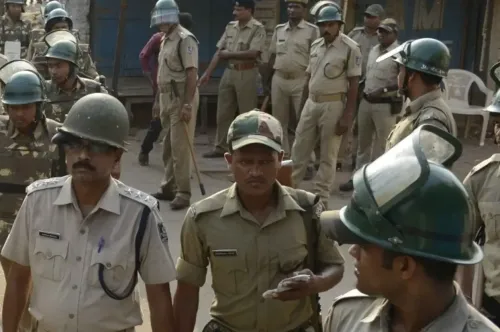Fresh Snowfall Blankets Higher Areas of J&K

Synopsis
Key Takeaways
- Fresh snowfall occurred in the higher regions of J&K.
- Significant snowfall was recorded in Doodhpatri and Sonamarg.
- Weather forecasts predict changes with potential rain/snow.
- Snowfall is critical for water reservoirs in the region.
- Tourists are advised to follow traffic advisories.
Srinagar, Feb 1 (NationPress) The elevated regions of Jammu and Kashmir (J&K) experienced a fresh layer of snowfall on Saturday, while the plains were impacted by rain and snow.
The higher altitudes in Kashmir, including Sonamarg, Zojila Pass, and Doodhpatri, saw moderate to substantial snowfall.
Doodhpatri recorded 1 foot of snow and Sonamarg received 1.5 feet.
Kulgam and Shopian districts had 2 to 3 inches of fresh snowfall, while their higher elevations reported 8 to 12 inches.
Ganderbal and Pulwama experienced light snowfall, whereas Srinagar city did not see any snowfall at all.
The MET department reported that the minimum temperatures were 0.8 degrees Celsius in Srinagar, minus 7 in Gulmarg, and minus 0.4 in Pahalgam, while Jammu city recorded 13.1 degrees Celsius, Katra 11.4, Batote 5.5, Banihal 2.8, and Bhaderwah 3 degrees Celsius as the minimums on Saturday.
A statement from the MeT office indicated, “On February 1, expect a partly to generally cloudy sky with potential light rain/snow at scattered areas towards evening/night and into the morning of February 1.”
“On February 2, conditions will remain partly to generally cloudy. February 3 will see generally cloudy weather towards evening with light rain/snow in isolated areas.”
“February 4 will bring generally cloudy skies with a chance of light to moderate rain/snow in many areas. February 5 will continue with generally cloudy conditions and the possibility of light rain/snow at scattered locations during the early morning/forenoon.”
“From February 6 to 8, expect generally cloudy weather.”
The MeT office issued a cautionary note advising, “Tourists/travellers/transporters should adhere to the admin/traffic advisory.”
The 40-day-long period of intense winter cold began on December 21 and concluded on January 30.
Weather will gradually shift after January 30, leading to a pleasant environment for spring tourism by mid-March.
Until mid-March, snowfall may occur to replenish the perennial water reservoirs in the mountains of J&K.
These reservoirs are crucial for sustaining rivers, streams, lakes, ponds, and other water bodies in the UT, as a winter without snowfall can result in a severe scarcity of water for irrigation and drinking during the summer months.









